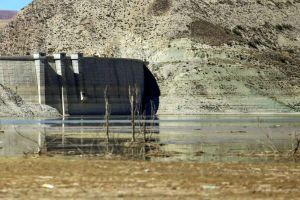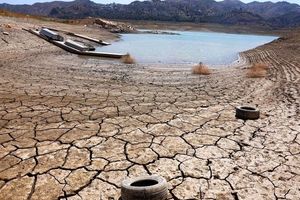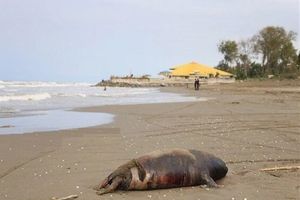A London appeals court ordered NIOC to surrender its landmark headquarters to satisfy a $2.4 billion claim by UAE-based Crescent Petroleum.
NIOC House, located on Victoria Street in central London overlooking Parliament and Westminster Abbey, was Iran’s last base in the Western hemisphere for managing oil contracts and sales. Brutalist in style, the 1975 building is valued at around £100 million ($125 million).
Iran lost its Rotterdam office in 2022, and Crescent may now seek additional Iranian assets in the UK or elsewhere, including frozen funds, though international sanctions could complicate enforcement.
NIOC still has the option to appeal to the UK Supreme Court—a process that could take up to two years.
The Calamitous Crescent
The Monday ruling upholds a 2021 decision ordering NIOC to pay damages, lost profits, interest, and legal costs, with interest continuing to accrue. A 2014 judgment had already confirmed that Iran breached a 2001 gas-supply contract with Crescent.
The 25-year Gas Sales and Purchase Contract (GSPC), signed under President Mohammad Khatami, envisioned Crescent processing up to 500 million cubic feet per day from Iran’s offshore Salman field and reselling it near the UAE border.
By 2005, however, NIOC halted deliveries, citing technical delays, and later accused Crescent executives of corruption before unilaterally terminating the contract. In subsequent proceedings, Iran failed to substantiate its claims.
Crescent began arbitration in 2009 under the International Chamber of Commerce. The ICC issued its first award in 2014 confirming Iran’s breach, and a final award in 2021 ordering NIOC to pay $2.4 billion. English courts later dismissed NIOC’s challenges.
In 2024, a UK court ordered the seizure of NIOC House, describing NIOC’s attempt to transfer ownership to the Oil Industry Pension and Welfare Fund as a “sham” maneuver to evade creditors.
Experts estimate the total cost to Iran — including legal fees and lost revenue from flared gas—at more than $7.25 billion.
Timeline
- 2005—NIOC halts gas deliveries, terminates contract
- 2009—Crescent files ICC arbitration
- 2014—ICC rules Iran breached contract
- 2021—Final award: $2.4 billion
- 2022—Dutch court seizes NIOC Rotterdam office
- 2023—UK High Court dismisses NIOC challenge
- 2024—UK orders seizure of NIOC House
- 2025 Sep 30—High Court enforces full award
- 2025 Oct 6—Court of Appeal rejects NIOC appeal
Reactions in Tehran
Iran’s state media framed the court ruling as “political interference,” linking it to sanctions despite the dispute predating them.
Former lawmaker Heshmatollah Falahatpisheh urged authorities to identify those responsible and “arrest those who make a fortune by exploiting their power and the nation’s assets.”
Political commentator Ahmad Zeidabadi lamented: “It is a shame that after 23 years, the people of Iran still do not know what happened, why the contract was terminated, and why the country must now pay such a steep price.”
For over two decades, hardliners and moderates have accused each other of wrongdoing and undermining the national interest over the Crescent deal.
But Crescent is not an exception in the Islamic Republic of Iran; it is the norm. And so would be the potential loss of NIOC House.
When Iran purchased the London building in 1975, it symbolized the country’s expanding reach in the global oil market. Today, Iran’s oil is traded through ghost fleets, and revenues flow through opaque networks tied to regime insiders.
NIOC House now stands as an emblem of Iran’s stunted growth and deepening isolation—the last remnant of an ambitious past, and a window into a despondent future.



















